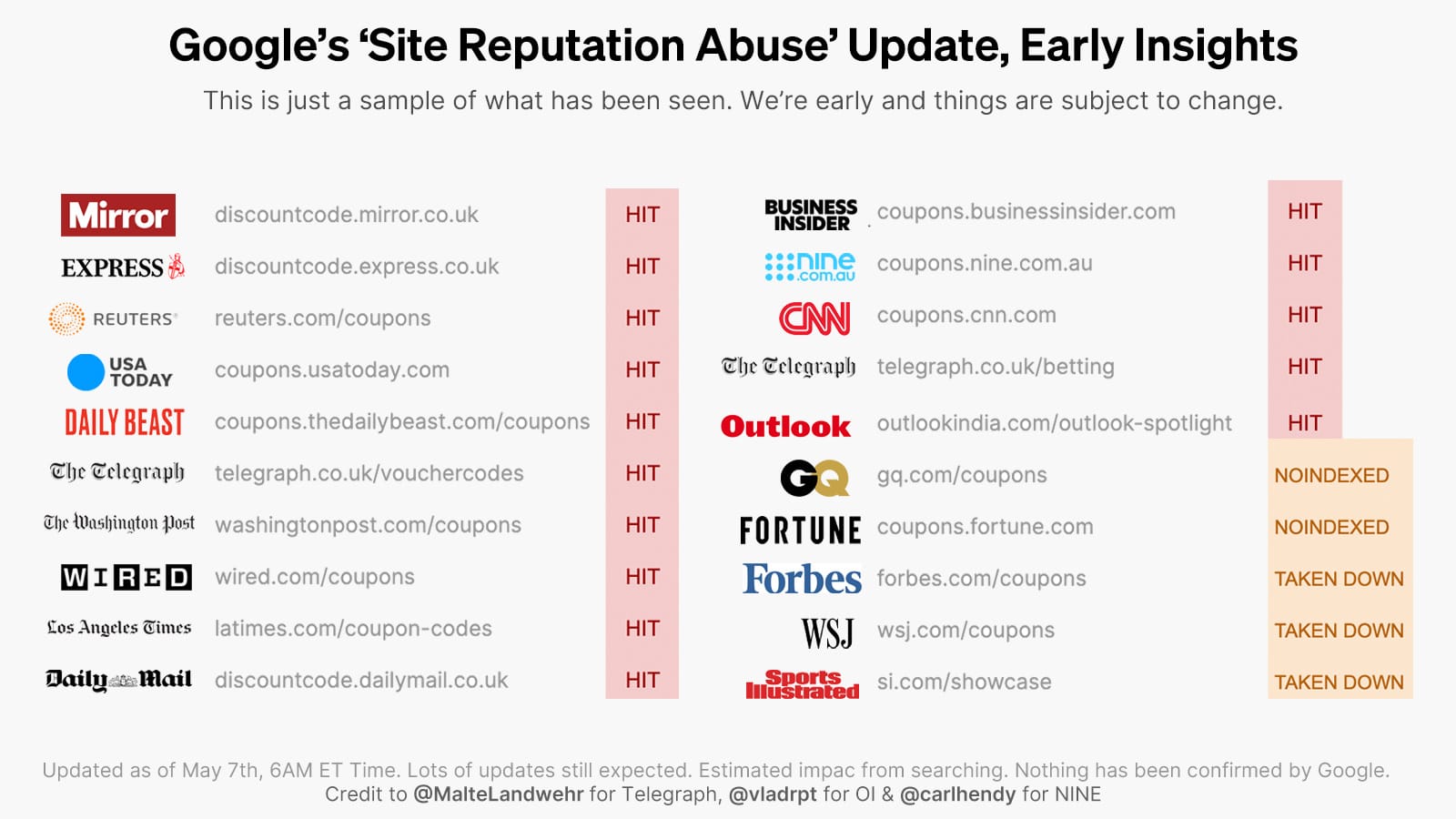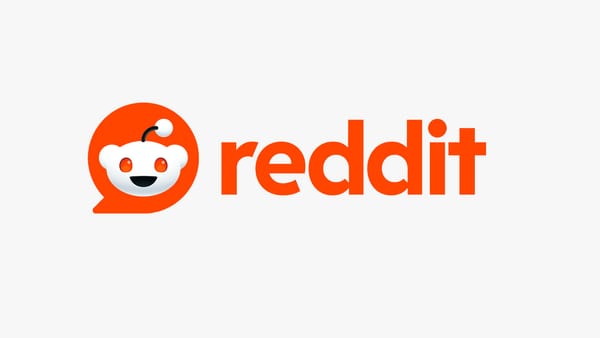On Sunday May 5th, Google fully rolled out its new spam update, otherwise known as the ‘site reputation abuse policy’.
Its foreboding presence has loomed over affiliate marketing since its announcement back in March.
In an initial press release, Google added news sites ‘hosting coupons provided by a third party’ to the list of what it considers to be spam. This rang alarm bells throughout the voucher code space. However, the same press release assured that ‘if the publication is actively involved in the production of the coupon area, there’s no need to block this content from Google Search’.
We spoke with Global Savings Group and Savings United at the time of this release. Both companies remained confident in the face of this new policy, arguing that the legitimacy of their business and the close partnerships, or active involvement, they maintain with brands and publications means they should pass through unscathed.
In general, this was the expectation for May 5th. Publications with lazy, unmanaged coupon directories would be deindexed, while the legitimate players would carry on as usual.
That isn’t what happened.
Instead, we’ve seen a near total wipeout of news sites’ coupon directories from Google SERPs. SEO Consultant Carl Hendy shared his research to X, outlining the impact on affiliates in the UK, Ireland, Australia and the US. Numerous coupon pages from large publications like Daily Mail, Metro, and The Mirror, which dominated coupon-related search terms just last week, have now disappeared from Google Search.
There were a few players still standing. Notably, The Sun appeared in a number of searches. Hendy reported that The Sun blocked out its ‘voucher code’ subdomain via robots txt and, thus, evaded Google’s crawler. However, he believes they will soon disappear too.
Glen Allsopp, Founder of Detailed.com, also shared a screenshot of his findings, which shows the publications that have been hit or taken down by the update.

This is a bold, disruptive move from Google. It doesn’t appear to have discriminated much between sites that take active involvement and those that don’t, instead targeting the entire industry of news sites hosting coupon codes.
First-party publishers of coupon codes, on the other hand, have survived the cull and are performing well in the SERPs as a result.
Some commentators have already noted that this could be considered ‘anti-competitive’, which has got Google in trouble before. If there is a legitimate case here, then Google could be receiving more lawsuits filed from affiliates before the end of the year.
The SEO decline is not limited to this update either. Lily Ray, Vice President, SEO Strategy & Research at Amsive, recently shared some data to X, showing the sites with the biggest percentage declines in Google SEO visibility between September 4, 2023 and April 22, 2024. Nearly all of the sites appear to be affiliate publishers.
We have been in contact with many of the publishers affected by this and hope to hear their take on the situation soon.








